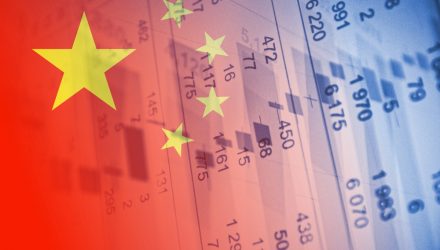China stocks and related ETFs remain sources of consternation for investors. Yet some experts believe now isn’t the time to ignore the asset class. The key is identifying the right ways to access the country’s stocks in an effort to position for a potential rebound.
Take the case of the KraneShares Bosera MSCI China A 50 Connect Index ETF (KBA). The fund is higher by nearly 5% year to date, while the MSCI China Index is saddled with a small loss. Acknowledging that gap, it’s possible that, should more global investors see opportunity with Chinese stocks, KBA could emerge as a leader among U.S.-listed China ETFs.
There are already signs that rebound could be forming. The MSCI China Index well off its January lows. But KBA is higher by 3.53% over the past month. Those could be signs some institutional buyers are nibbling at Chinese stocks.
KBA Could Be Credible Rebound Candidate
Integral to the China equity thesis are the country’s economic data and the point that stocks there are inexpensive. However, many market participants won’t embrace the latter without support from the former. Fortunately, that scenario could be improving.
“China’s stocks are flat so far in 2024 and valuations are in line with 20-year lows,” noted Jeffrey Kleintop of Charles Schwab. “There have been some green shoots, with better-than-expected export growth in the combined January-February data, supported by the global manufacturing recovery we believe has started.”
Still, China has a confidence problem. Shaking free of low consumer, corporate, and investor confidence could be what’s needed to propel stocks there higher. Much of that lack of esteem is attributable to long-running issues in the country’s property and lack of bold response by the central bank.
One avenue to restore confidence would be for Beijing to loosen capital controls. Global investors have worried about the government’s regulatory efforts over the past several years, including restrictions on capital. Regulations are seen as hindering foreign investment and innovation in China. That confirms that if those policies are altered, KBA could respond in positive fashion.
“There are no signs of any major imminent shift in policy in China. But it is worth keeping in mind that China’s policymakers rarely signal such changes in advance. Any surprises could potentially trigger sharp rebounds in China’s stock market, like in late 2022 when the zero-COVID restrictions were suddenly dropped. China’s stocks shot up 60% over the subsequent three-month period,” concluded Kleintop.
For more news, information, and analysis, visit the China Insights Channel.

